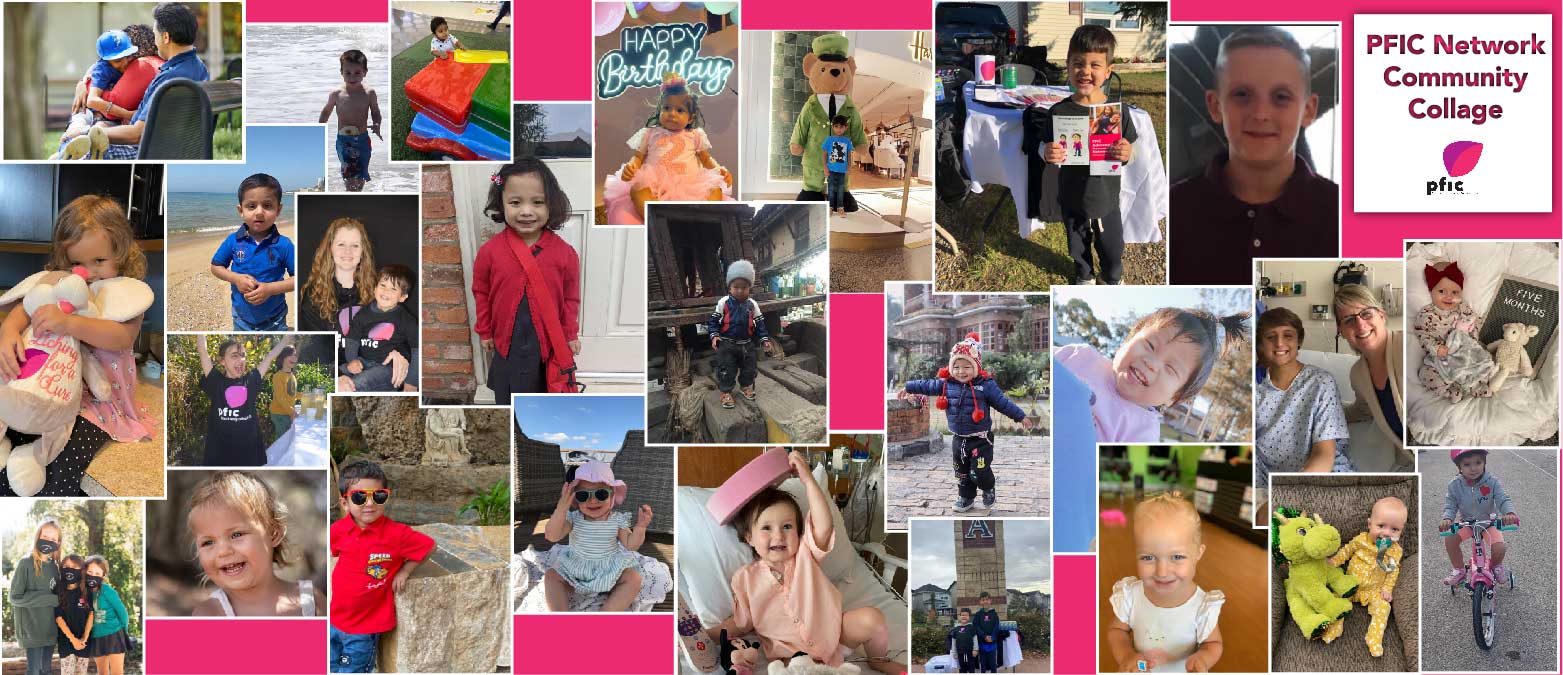Things Were Getting Better, But Now They’re Worse Again
One of the most heartbreaking aspects of living with PFIC (or loving someone who does) is the unpredictability of its course. For a while—perhaps even a long while—a treatment might work. The life of the patient and their family might feel beautifully, blessedly normal. And then, for no obvious reason, that same treatment can become ineffective. Itching returns, along with misery and sleepless nights. Or some other symptom emerges, for which a cure remains elusive. In the same way that a treatment, when it works, makes all of life feel easier and more manageable, a reemergence of symptoms can make everything hard and overwhelming again.
If you find yourself in a comparatively comfortable state at this moment—one in which symptoms are well controlled—enjoy that. Allow yourself the pleasure of being in the moment, and know that the broader PFIC community is happy for the relief you’re experiencing.
This month’s post is for patients and families who find themselves in the heartbreaking position of living with the return of symptoms that, for a time, had been gone. For a while, you were managing well, but now you feel defeated. For a while, your world made sense, but now it’s come crashing down.

You know that you have to move forward—have to keep putting one foot in front of the other. Depending on your coping style, you may be inclined to rush that process. “You’ve done this before, and you can do it again,” you might tell yourself. And you are right. You have done this before, and you can do it again, but there is something else you likely need to do first: grieve.
To grieve simply means to feel and express your own deep sadness. The definition is simple, but the process itself runs counter to much of the cultural messaging that we receive. Maybe you imagine that you need to stay positive for the people around you. Maybe you imagine that you need to stay positive for yourself—that if you don’t, you’ll fall into a pit so deep that you can never climb out again.
Why grieve, then? Why do something that sounds so miserable? Why not just choke the feelings down, plaster a smile on your face, and forge numbly ahead?
You can likely feel the answer to this question in your own body. You might notice a tightening in your throat or chest. Perhaps your muscles feel tense and painful. Maybe you notice your heart racing or notice your irritation flaring at the slightest of provocations. Unprocessed grief lives in our bodies as anger, irritability, fear, exhaustion, tension, apathy, despair, illness, and pain. What lives in our bodies comes to life in our relationships, too, coloring everything around us. Grief work is healing work. Grief work is the work of feeling and expressing your heartbreak so that, bit by bit, you can release it and move forward in a truer, cleaner way.
It is natural to need support with your grieving process. Reach out to a sympathetic friend or find a therapist. Ask your doctor or your child’s doctor how to get support. Join one of the PFIC Network’s support groups, or sign up for a one-on-one support session with the author of this article.
Your grieving process will be as unique as you are. Here are just a few examples of forms that it might take:
- Carving out a particular time and space every day to allow yourself to feel everything that’s churning below the surface. You might, for example, do this in the shower, letting your tears mix with the water.
- Sharing your feelings openly with a supportive friend or family member who understands the importance of just listening and holding space for you.
- Journaling about your feelings.
- Taking walks in nature or sitting outside with a favorite tree, imagining your feelings releasing into the air that surrounds you.
- Practicing yoga or meditation and, within that space, allowing whatever comes up to come up.
- If you have a supportive partner, you might deliberately and intentionally take turns being the strong one. “Today is my turn to fall apart, and tomorrow is yours.” Of course, it’s important to be forgiving and flexible if a schedule like this proves too regimented for either person’s grief!
- Creating art or music that reflects your feelings. These don’t need to be ‘good’ art or music. Crayon scribbles or a shrill wailing may be the most apt expression of your inner landscape right now. The power of this lies in the process of creating based on what’s inside you, not in the external outcome of that process.
- Taking time to consciously remember that other families find themselves in the same position. Breathe in and out slowly and imagine these other patients and families who are in a situation like yours. Imagine their pain, a mirror to your own pain. Imagine your breath reaching out across the distance and joining together with their breath. Imagine that the grief work you do will be cleansing and healing for all of you.
Here at the PFIC Network, we see the hard work that you are doing to care for yourselves and your loved ones. We honor the love, courage, knowledge, and tenacity that you are showing and building. We get that this process is messy and painful. We see you in your loving, courageous, painful mess. If you have suggestions for how we can better offer emotional support, please reach out at mentalhealthsupport@pfic.org.
